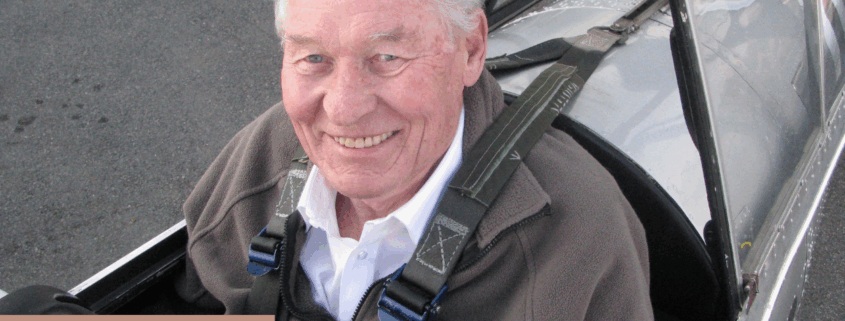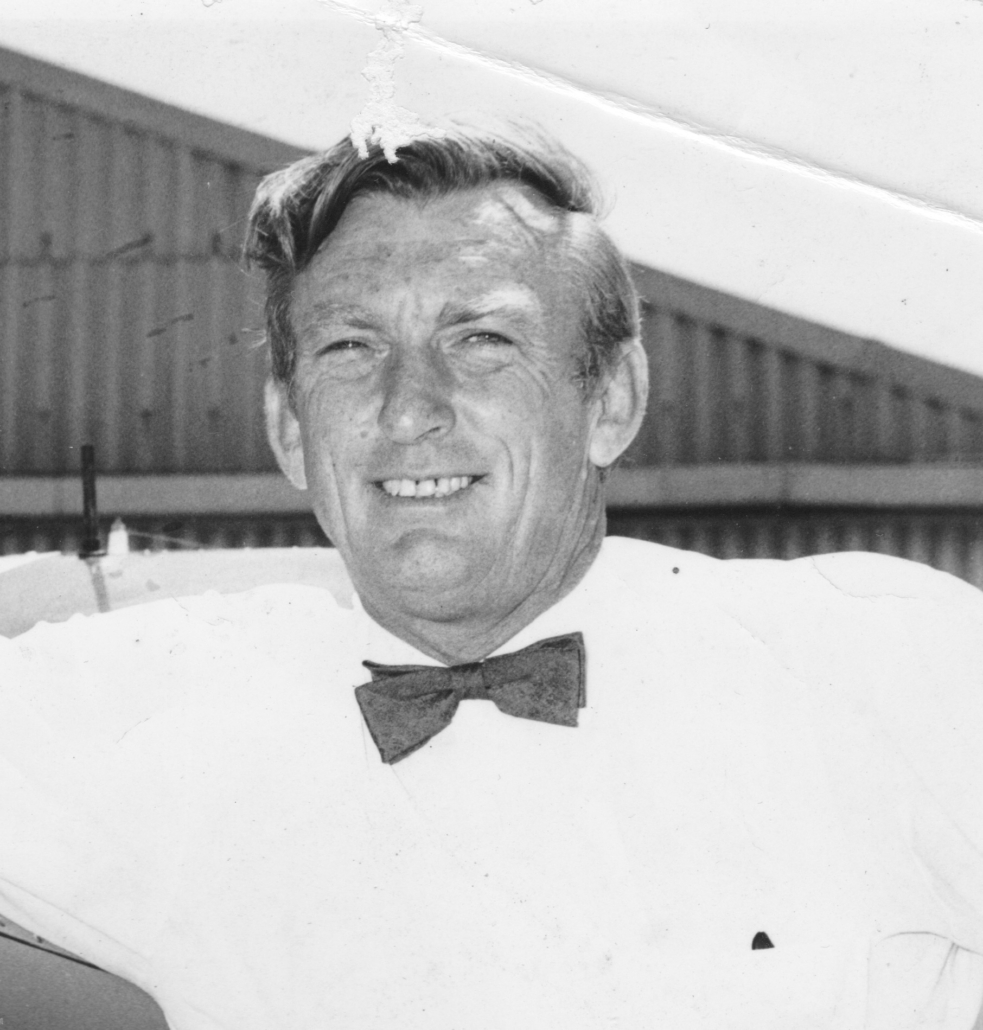|
Getting your Trinity Audio player ready...
|
One day, my training was complete. I had passed the exams and the flight test. Suddenly, I held a passport into aviation—a small, black book proclaiming I was a Pilot.
Armed with this and my logbook, showing exactly 40 hours, I went to Placo (Pretoria Light Aircraft Company), the Piper distributor for Southern Africa, and marched confidently to the main office door.
A man in a white shirt and bow tie greeted me with a big smile. He introduced himself as Zingi Harrison, the Sales Director, and asked if I wanted to buy an aeroplane.
When I explained I was seeking employment and presented my license and logbook as evidence, Zingi’s demeanor changed abruptly. After a quick glance at the documents, he curled his lip, adjusted his bow tie, and told me to get lost and gain some experience.
My world crumbled.
I had believed that once I earned my PPL, I would leave chicken farming forever and immerse myself in the world of aeroplanes. But I had no money for more flying. Without additional hours, Zingi implied I’d be raising poultry for life.
Desperate, I called everyone I could think of until I reached a friend of a friend, Hugh Stocks. Hugh had also dreamed of flying in his youth. He now owned a magnificent twin-engined Aero Commander 500B, ZS-CTC, which he flew 600 miles to Kimberley and back weekly.
Hugh turned out to be one of life’s gentlemen. He invited me to fly his sleek airliner from the left-hand seat. With his Instructor Rating, I could log the hours.
Years later, the memory of Hugh’s kindness inspired me to help other young aviators needing a leg up into aviation—but that’s a story for another day.
By June 1963, my logbook boasted 15 hours and 40 minutes in Hugh’s Aero Commander.
With this new experience and a stubborn persistence, I visited Placo weekly, lingering outside Zingi’s office. Eventually, it paid off. Zingi told me to report for duty on Monday as a hangar-rat-cum-trainee salesman.
Years later, he admitted he hired me because anyone with such persistence would make a good salesman. He was wrong—I was a terrible salesman.
My salary was 40 Rand a month, about half what an apprentice bank clerk earned.
On my first day at Placo, takeoff was set for sunrise. Our destination was Mafeking, over the western horizon. Old Piet, who was “Ze Boss,” hailed from Holland. He decreed, “Ve are leaving at six o’clock in ze morning, in Charlie Visky Golf.”
I arrived an hour early to open the hangar doors, perform a pre-flight check, and wheel the 250 Comanche outside for his Highness.
It was the most beautiful aircraft I’d ever seen—red and white, with an interior that smelled of leather. I was awed by the array of dials, gauges, levers, and switches. It was hard to believe I’d soon be airborne in this miracle machine.
My duties at Placo included making tea, polishing aircraft, vacuuming interiors, and blacking tires. Zingi mentioned I’d occasionally fly with the big boss, who feared a heart attack and wanted another pilot aboard in case he collapsed. I knew my meager skills would do little to delay our demise should Old Piet falter at the controls.
About two hours after our estimated time of departure, the great man arrived in his black-and-chrome Buick, enveloped in a cloud of red dust. He eased his bulk from the car and eyed me with the revolted curiosity one might reserve for a grotesque exhibit in an art gallery.
He was of heavy build and medium height. His suit was clean and expensive, yet he looked like he’d spent the night inspecting a drainage system. The ensemble was topped with a sweat-stained brown hat.
He surveyed me with distant contempt. Finally recognizing me from the previous day, his thoughts clicked into place. “Hell’s teeth, Zim, ve are late,” he said, making it sound like my fault.
We clambered aboard and rumbled down the taxiway to runway zero-six. “Vot’s our heading?” he inquired.
I was baffled. I had only a vague idea of Mafeking’s location. I considered myself a passenger, yet he expected an answer with numbers. My blank expression prompted, “Vare’s ze map?” I groped around the cockpit for a hidden map compartment. Meanwhile, Mr. Piet executed a 180, and we thundered back to the hangar.
“Zere is a map on ze crew-room vall,” he said. Taking the hint, I dashed inside while he and the Comanche growled on the tarmac.
A piece of string and a Douglas protractor were nailed to the wall map. I stretched the string to Mafeking, read off 270 degrees, and sprinted back to present the figure to my fuming employer.
Soon, we were airborne, heading west.
Mr. Piet excelled at one thing: trimming the aircraft for level flight. The manifold pressure and revs settled precisely, the mixture was adjusted with a jeweler’s precision, and final trim tweaks were made with delicate taps of his middle finger on the overhead handle. The Comanche tucked its nose down and surged forward.
Once set, he gestured for me to take the controls, pointing silently at the altimeter and directional gyro. I understood my duty was to maintain a heading of 270 degrees and flight level 85. Old Piet then retreated behind his newspaper, filling the cockpit with the stench of his cigar.
I held the numbers as precisely as I could, craving a word of approval to confirm I was doing well and my job was secure. I wanted this life forever. Old Piet, engrossed in his paper, seemed to show a sliver of confidence in me.
It’s 180 miles from Wonderboom to Mafeking, and we cruised at 180 mph. Even I could calculate the trip should take about an hour.
After 55 minutes, Mr. Piet lowered his newspaper and peered over his half-moon glasses. “Vare ze hell are ve?” he asked. I was wondering the same. The day was spectacularly clear—visibility stretched 60 miles in all directions—yet the desolate landscape lacked any notable features, especially Mafeking.
“Ve vill give it anozer ten minutes,” he declared, as if warning the terrain itself. I knew that if this delinquent town didn’t appear, I’d bear the blame.
Indeed, I did. Mr. Piet unleashed harsh words about my ancestors, education, and intelligence. We landed in a field to “ask some bastard ze vay.”
The local pointed north, and we blasted off in that direction. Old Piet brooded, an air of disharmony filling the cockpit.
“Vot about ze bloody variation?” he asked.
The term “variation” rang familiar, but its meaning escaped me. Eager to learn, I waited for him to elaborate.
“Zim, you are fired.”
This bombshell silenced me for the rest of the day.
We landed back at headquarters that evening. Zingi emerged to greet us, looking cool in his crisp white shirt and polka-dot bow tie, despite the day’s heat.
“Zingi,” Piet said, “yesterday you employed zis bastard, and today I fire him.” He stomped off.
Zingi descended on me like a collapsing tower. He reminded me that 24 degrees of westerly variation wasn’t just a phrase—it held critical meaning for pilots aiming to reach a specific destination. He advised me to lie low for a few days.
I thought Zingi was the greatest guy on earth.
- Old Piet and Mr Piper - October 20, 2025
- Hired and Fired - September 26, 2025
- Zingi and the Auster - July 16, 2025





Fun story. I guess you were employed by them for a while?
Yes I was indeed Peter – it was a very good start to a lifetime of flying. All the best, Jim